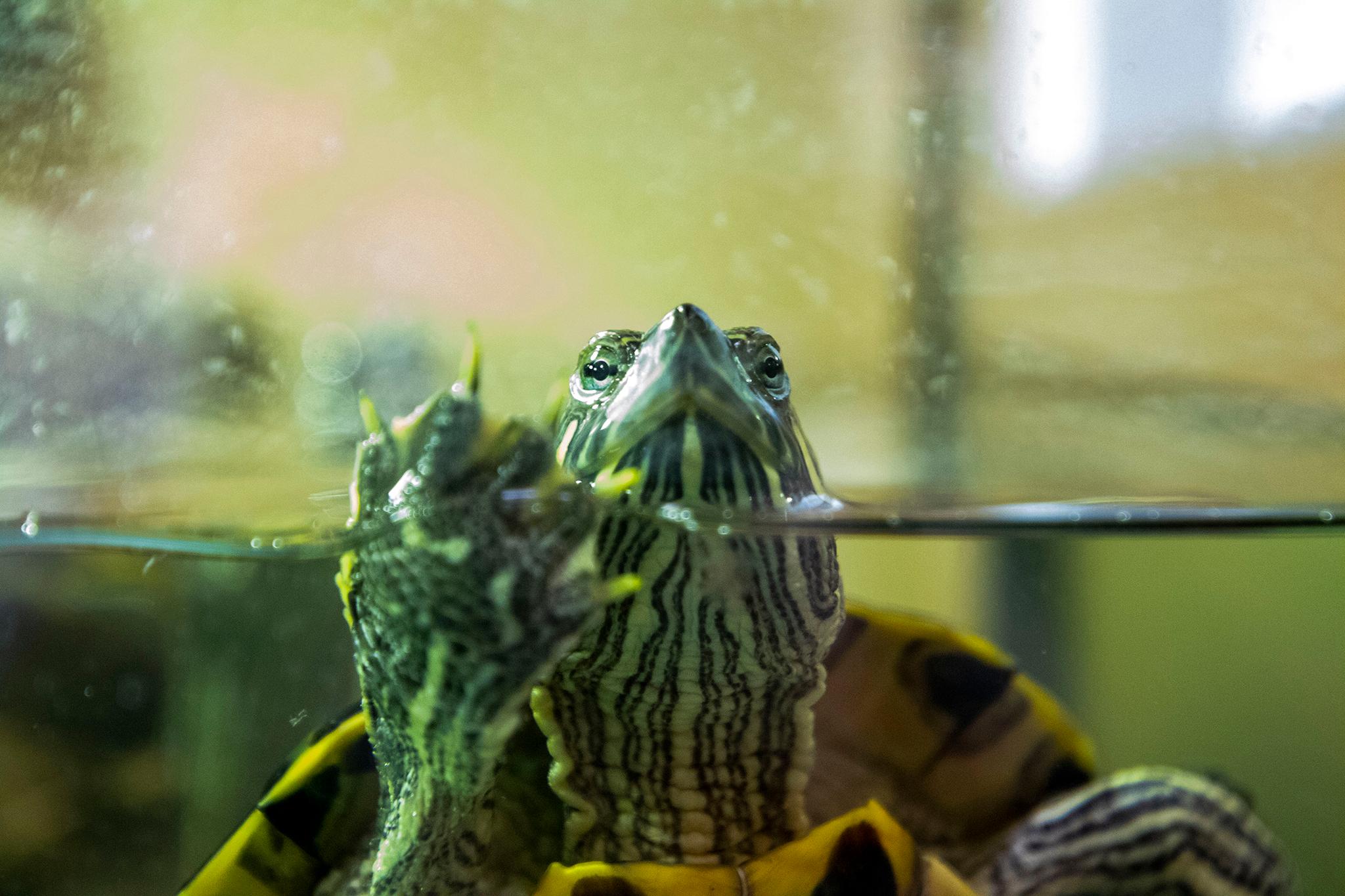A thread on Reddit went fairly viral last week when user MonsterBurrito posted a photo of a sign spotted in Platt Park.
"If you see a tortoise, he lives here, please knock, we can't find him," it read. "P.S. he is the size of a big hamburger."
Denverite decided to investigate.
It turns out Munch the Greek tortoise belongs to August "Gus" O'Reilly. He and his mom, Anne, answered the door when we came around knocking.
Munch went missing back in July, Anne said.
"Me and my mom were out letting him out in our front yard and he crawled into this bush," Gus said. "Went in to play cards. We came out to check on him, and he wasn't there."
Gus helped craft a sign and stuck it in front of the house, hoping some helpful neighbor might see it. They haven't had any luck so far.
It turns out, turtle and tortoise escapes are pretty common.
The Colorado Reptile Humane Society even has an option on their automated phone tree to report lost or found turtles and tortoises.
"They just slip under a bush, cover themselves with mulch and then they're evaporated," Ann-Elizabeth Nash, the organization's executive director, said. "It doesn't take long."
Animals of the testudines order need to bury themselves to regulate body temperature, Nash said. They also like to hide, since they are still wild animals and have predator instincts to honor. She said the shelled creatures spend "a lot of time" trying to escape pens, especially if they're "too small or boring."
If one of your family members is green and shelled like Munch, you might try to keep your eye on them. They are not as slow or slow-witted as you might expect.
Munch probably didn't get too far on his own, Nash said. If he did find a nice place to hide, he may still be nearby.
If he's still in nature, it's possible Munch will do OK.
Several Reddit commenters claimed their lost turtles and tortoises miraculously reappeared years after they left.
"When I was a kid we had a turtle go missing for 3 years. He was living in Bear Creek," one person wrote. "Then we found him crossing Dartmouth one day. He had specific scars on his shell, so we knew it was him."
Anne O'Reilly said she's heard similar stories from passersby who saw Gus' sign and stopped to chat.
Nash said it is possible, though she worries for Munch, since his native Mediterranean habitat is dryer and warmer than Colorado's.
Tortoises do hibernate, though it's "physiologically very different than what a bear does." At the Colorado Reptile Humane Society, Nash's team stocks sleeping tortoises in a dry fridge to keep them cool and dry. She wouldn't allow Munch to sleep outside if he were in her care.
Still, she said, "We certainly have seen tortoises that have managed to survive in Denver if they've got access to a good brush pile."
The bright side, Nash said, is somebody probably picked him up.
It's very common for humans to find lost turtles and tortoises and just take them home.
"The even more likely version is someone picked up the animal and has it in captivity, and isn't seeing social media or a newspaper that it is really a lost pet," she said. "Most people don't have that reaction anymore with dogs and cats, but with reptiles they're like: Oh! Free pet!"
Here's the thing: There are no native tortoise species in Colorado. If you find a creature with a domed shell and without feet that resemble flippers, it's probably a tortoise, and it's probably someone's pet. Turtles swim, for the record, and tortoises do not.

But Nash said people tend to think that lost tortoises are wild animals that need help. She remembered the case of Lucy the Sulcata tortoise, a huge reptile who escaped her pen and was "helped" by several humans when they dropped her into Colorado parks. Her family called the news, but it was weeks before someone recognized her. Because of the interventions, Lucy made it from Westminster to Lafayette before someone finally helped her reunite with her parents.
"Finding an animal and then leaving it in a natural place is, of course, the wrong thing to do," Nash said. "The opportunity for tragedy there was really high."
You can chip turtles and tortoises, which we do all the time with dogs and cats. Nash said microchips can be epoxied to their shells so shelter staffers have an easier time finding owners' information.
Gus said he's felt Munch's absence.
Since he's spending a lot of time learning at home these days, losing Munch has become a bigger bummer. 2020 has been kind of like that.
"It's the worst possible thing that could happen," he said of virtual school. "That is 50 percent true."
It's been handy to have a dog around the house, but he's still hoping Munch might turn up. It's one reason the O'Reillys have left the sign out.

Another reason, Anne said, is it's been a nice way to meet the neighbors.
"It's quite a conversation starter," she said. "Part of me likes the sign out because because people stop and talk."
If you see Munch, or if you've been harboring him by accident, drop us a line?













